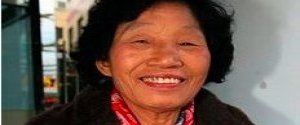
AP:
SEOUL, South Korea — A woman in South Korea who tried to pass the written exam for a driver's license with near-daily attempts since April 2005 has finally succeeded on her 950th time. The aspiring driver spent more than 5 million won ($4,200) in application fees, but until now had failed to score the minimum 60 out of a possible 100 points needed to get behind the wheel for a driving test.
Cha Sa-soon, 68, finally passed the written exam with a score of 60 on Wednesday, said Choi Young-chul, a police official at the drivers' license agency in Jeonju, 130 miles (210 kilometers) south of Seoul.